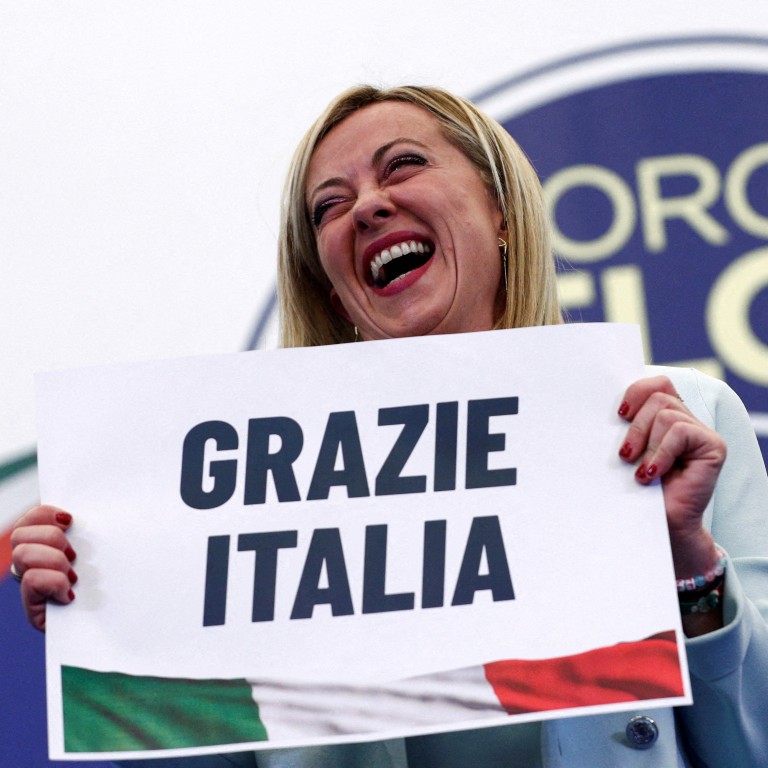
Italy’s LGBTQ community has ‘very real fears’ after far-right election victory
- A conservative bloc dominated by far-right has won Italy’s general election, leaving LGBTQ community wondering what’s next for them
- Manifestos include things ‘quite negative for our community, like stressing the importance of protecting only the traditional family’
The LGBTQ community has “very real fears” after a conservative bloc dominated by the far-right won Italy’s general election, a leading gay rights campaigner said.
“Unfortunately, there are very real fears” about an erosion of civil rights under the new administration, Fabrizio Marrazzo of the Gay Party said.
Meloni is allied with the League, another far-right force led by Matteo Salvini, and the mainstream conservative Forza Italia of former premier Silvio Berlusconi.
“The League and partly Brothers of Italy have in their manifestos things that are quite negative for our community, like stressing the importance of protecting only the traditional family,” Marrazzo said.

Meloni, 45, was raised by a single mother and is unmarried with one daughter. She presents herself as a defender of Christian values and an enemy of what she calls “gender ideology” and the “LGBT lobby”.
Explaining her opposition to gay parenting rights, she has said that “unlucky children” who are up for adoption “deserve the best” - meaning a father and a mother.
Meloni has denied suggestions that her socially conservative outlook would stretch to undermining or abolishing existing Italian legislation on abortion rights or same-sex partnerships.
“What is there, stays there,” she said last week.
‘Homosexuality is not a disease’: Vietnam tells doctors to back LGBT rights
Marrazzo, a former leader of the Arcigay LGBT (lesbian, gay, bisexual and transgender) association who unsuccessfully stood in the September 25 election, said he was most concerned about the cultural signals coming from the right.
Pro Vita & Famiglia, a conservative Catholic lobby that is highly suspicious of sex education in schools, has called on the new government to pick an education minister opposed to “any gender and LGBT ideological colonisation in schools”.
Meloni is not expected to take office before late October, so it is too early to say whether she will heed the advice. Meanwhile, her party’s culture spokesman caused a stir by saying last week that gay couples “are not legal”.
Federico Mollicone later clarified he was referring only to gay couples who adopt. He also said his party supports same-sex partnerships, despite having voted against their introduction in 2016, and “is against all discrimination”.
Meloni’s aide also stood by a call to censor an episode of the popular children’s cartoon Peppa Pig which featured a polar bear with two mothers, saying gay parents cannot be presented to minors “as an absolutely natural fact”.
Bhutan beauty queen blazes LGBT trail in land where gay sex was long illegal
But surveys suggest most Italians are more relaxed.
In June, an Ipsos poll showed that 63 per cent of Italians backed marriage rights for gay people, up 15 points from 2013, and 59 per cent were in favour of gay adoptions, an increase of 17 points from nine years ago.


